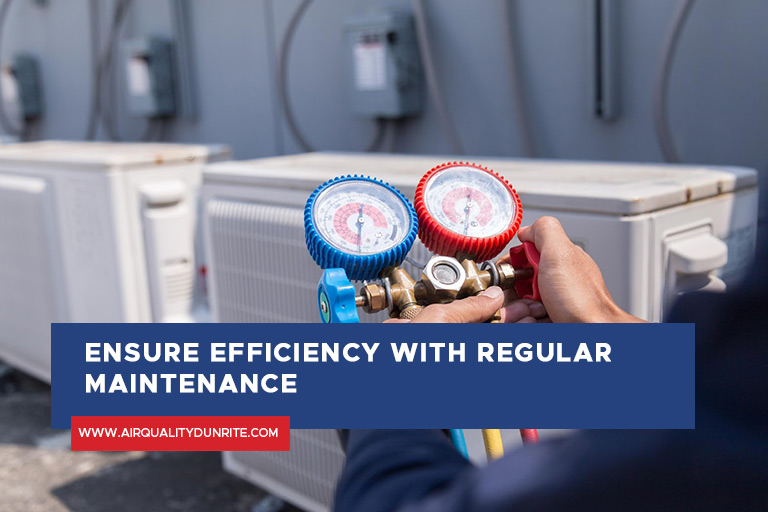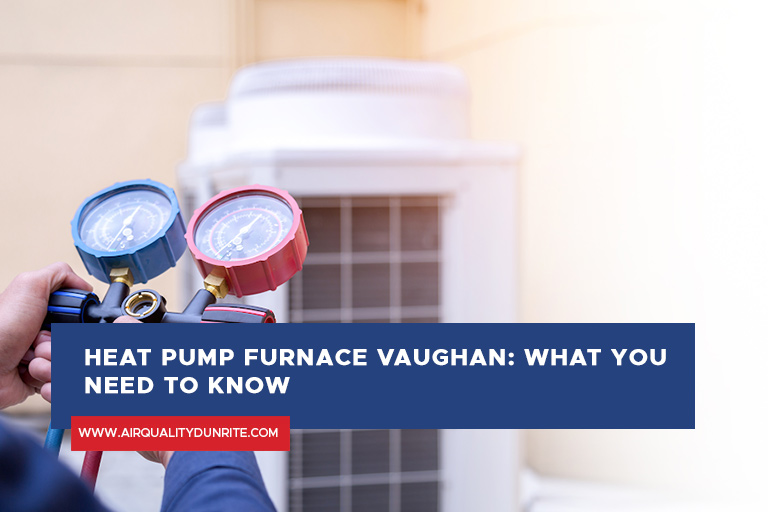As the demand for energy-efficient solutions grows, heat pump furnaces are emerging as a key player in the heating industry. A recent report highlights that if current sales trends persist, heat pumps are expected to meet approximately 20% of the world’s heating needs by 2030, with around 600 million units in use.
This trend underscores the increasing relevance of heat pump furnaces in providing both effective and sustainable heating solutions. In Vaughan, the adoption of these systems is on the rise, offering residents an opportunity to enhance their home’s energy efficiency and reduce utility costs.
Understanding Heat Pump Furnaces
A heat pump furnace is a type of heating system that uses the principles of heat transfer to provide warmth to your home. In contrast to conventional furnaces, which produce heat by the burning of fuel, heat pumps transfer heat through the use of a refrigerant. Since heat is transferred rather than produced, this process has the potential to be more energy-efficient.
How It Works
A heat pump furnace operates by extracting heat from the outside air (even in colder temperatures) and transferring it inside. The system uses a compressor to move the refrigerant through a cycle of evaporation and condensation, effectively heating the indoor space.
In summer, the process can be reversed to provide cooling, making heat pumps a versatile option for year-round comfort.
Comparison with Traditional Systems
Traditional heating systems, such as gas or oil furnaces, generate heat through combustion. This process consumes fuel and releases exhaust gases, which can contribute to higher energy bills and environmental impact.
In contrast, heat pump furnaces are designed to be more energy-efficient by leveraging existing heat from the environment, which can result in lower energy consumption and reduced greenhouse gas emissions.
Installation Considerations
When it comes to installing a heat pump furnace, several key factors should be taken into account to ensure optimal performance and longevity of the system.
- Sizing and Placement
Proper sizing is crucial for efficient operation. An undersized unit may struggle to maintain comfortable temperatures, while an oversized unit could lead to inefficient cycling and higher energy costs.
It’s important to have a professional assess your home’s heating needs to determine the right size and placement for your heat pump furnace.
- Installation Challenges
Heat pump installations can involve various challenges, such as integrating the system with existing ductwork or addressing space constraints. It’s essential to work with a skilled professional who can navigate these challenges effectively and ensure a smooth installation process.
- Professional Expertise
Choosing a qualified heat pump contractor near you is vital for a successful installation. Look for contractors with experience in heat pump systems, positive reviews, and relevant certifications. They will be able to handle the technical aspects of the installation and provide valuable insights to optimize your system’s performance.
- Local Climate Considerations
Vaughan’s climate can affect heat pump performance, especially in colder months. A professional installer will consider local weather patterns and make any necessary adjustments to ensure that your heat pump furnace operates efficiently throughout the year.
Maintenance Tips

Regular maintenance is essential for keeping your heat pump furnace running smoothly and efficiently. Proper care can extend the lifespan of your system and ensure optimal performance throughout the year.
- Schedule professional inspections at least once a year to check for any potential issues and perform necessary adjustments. During these inspections, technicians will examine critical components such as the refrigerant levels, electrical connections, and overall system performance.
- Regularly replace or clean the air filters in your heat pump furnace to maintain proper airflow and prevent dust buildup. Clogged filters can reduce efficiency and lead to system strain. Typically, filters should be checked every 1-3 months and replaced as needed.
- Keep the outdoor unit clear of debris, leaves, and snow. Obstructions around the heat pump can impede airflow and impact its efficiency. Ensuring a clear path around the unit helps it operate more effectively and reduces the risk of damage.
- Pay attention to any unusual noises or changes in performance. If you notice anything out of the ordinary, such as inconsistent heating or strange sounds, contact a professional to diagnose and address the issue promptly.
- Regularly clean the outdoor and indoor units to get rid of debris and dust. To avoid water damage, this also entails cleaning the coils and making sure the condensate drain is clear.
Ready to Upgrade Your Comfort?
A heat pump furnace in Vaughan can be a game-changer for your home’s efficiency and comfort. With its advanced technology and energy-saving benefits, it’s an excellent investment for both your wallet and the environment.
If you’re considering installing or maintaining a heat pump furnace, look no further than Air Quality Dunrite. Our experienced team is ready to help you every step of the way. Call us today at (416) 674-8184 to discuss your needs and get started on enhancing your home’s heating system.



